British and Irish Lions: Rugby union's commercial big cats
- Published
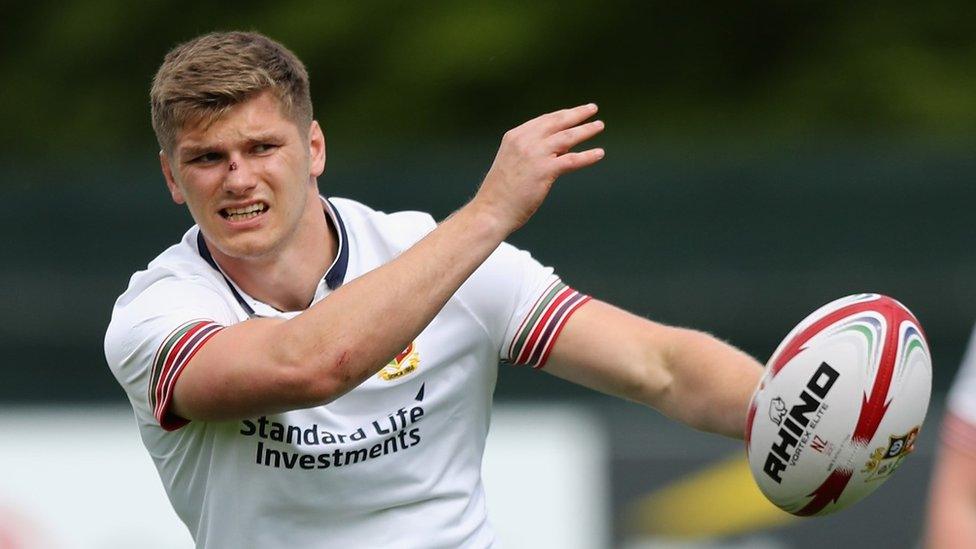
The Lions' squad will play 10 games in New Zealand on this tour
The British and Irish Lions are not only one of the biggest sporting names in rugby union, they are also arguably its premier commercial brand.
This weekend Warren Gatland's squad kick off their tour of New Zealand, home of the World Cup holders. It will be their first visit since 2005, in what should be a mouth-watering series of clashes.
Each Lions tour generates millions of pounds in turnover, with revenues pouring in from major sponsorship deals, tourism and other events such as high-profile gala dinners. It is estimated that the Lions turn over about $50m (£39m) in each four-year cycle between tours.
Meanwhile, some 35,000 fans are expected to make the journey from around the world, with close to half buying packages from the in-house travel operator, Lions Rugby Travel.
This commercial power of the tour, which takes in 10 games - including three Test matches against the All Blacks - means it will generate significant revenues for the development of the sport in the UK and Ireland.
'Profits'
"The value of the Lions is actually so much greater than what you might see on a tour. It is the fusion of the professional and amateur eras, it embodies all the good qualities of the game," Charlie McEwen, British and Irish Lions chief operating officer, tells me.
"And that means that supporting and growing the presence of rugby union is a very important part of what we do. The Lions is a subsidiary of the four home rugby unions and any profits are distributed back to the home unions, with the ultimate aim of growing the game."
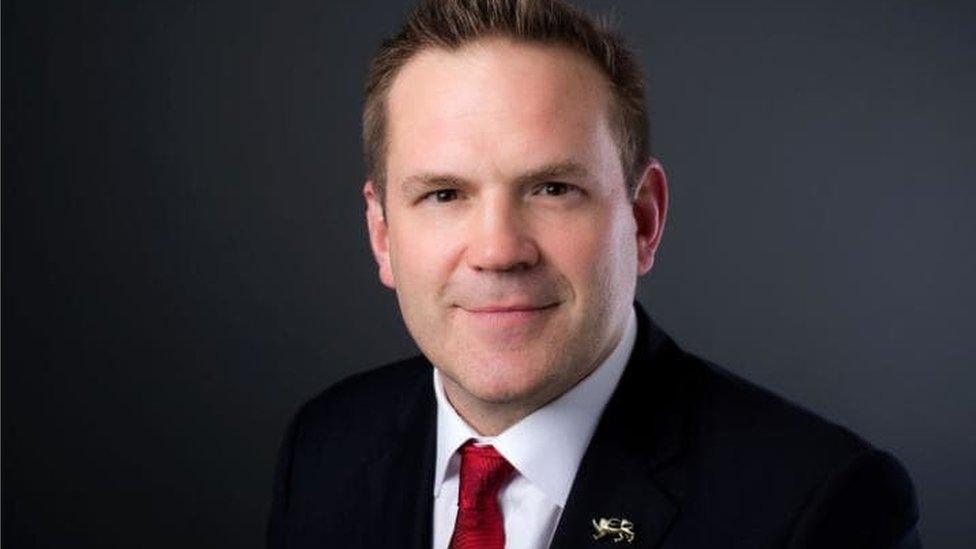
Charlie McEwen says the Lions combine the commercial with the sporting, for the good of the game
As part of that mission, at the end of March the Lions also unveiled its own separate grassroots programme. It will see some of the money they raise go directly into a standalone Lions-directed programme.
"With the support of the home unions we will be running programmes for existing youth players to keep them in the game," says Mr McEwen.
"It will be using the inspiration of the Lions brand to keep them playing at an age - late teens and early twenties - where there is a high drop-off rate."
'Reflect our values'
The Lions' financial machine that generates those funds for developing the game is largely sponsor-driven.
In total there are 11 major commercial backers - from shirt sponsors Standard Life to brewery Doom Bar, the official beer of the Lions. Some three-quarters of the Lions income is from sponsorship, a much bigger proportion than that enjoyed by England's RFU or any of the other home unions.
"We hold sponsors and partners very dear," says Mr McEwen. "We look to find brands that reflect our values and everything we stand for.
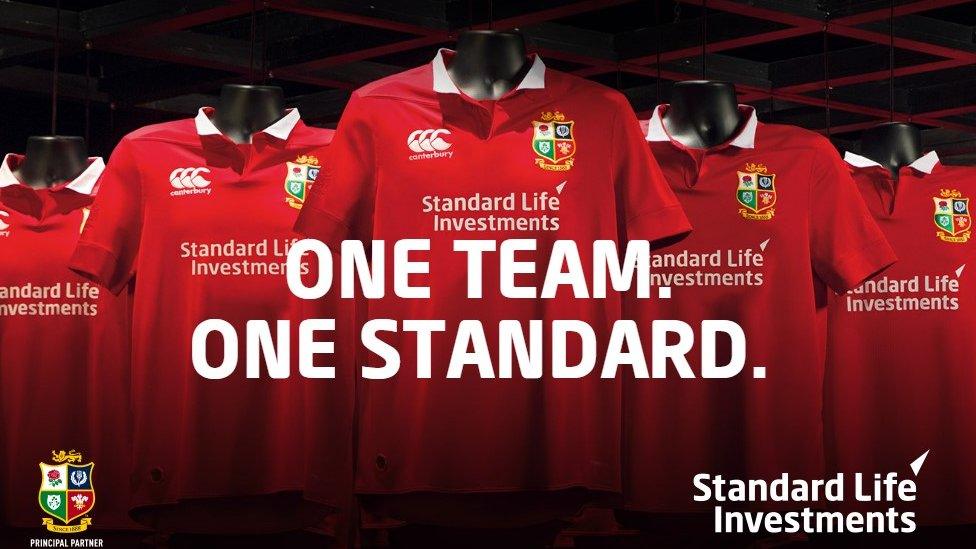
Standard Life is one of a number of big name sponsors of the Lions' tour
"We try to ensure we deliver against what they need, but also to make sure they don't compromise our values, or ability to perform on the field. If we are not competitive on the field then the whole concept of the Lions is brought into question."
As well as Standard Life, which replaced HSBC as shirt sponsors, other big name backers include Land Rover, Qantas, Gillette, EY, and Canterbury.
Brand review
In a changing sporting and leisure landscape, he insists that the Lions are not an anachronism but are as relevant now as they were when they first set out across the globe in the late 19th Century.
In 2014 the Lions itself underwent an internal "strategic brand review", conducted with players from the 1950s to the present day, and also including coaches, broadcasters, commercial partners and consumer experts.
Mr McEwen said that it was realised that if the players did not still have the desire to be selected for the Lions ahead of their sporting peers, then the brand was no longer relevant.
He said that after a thorough analysis that drive among players to be selected was still there.
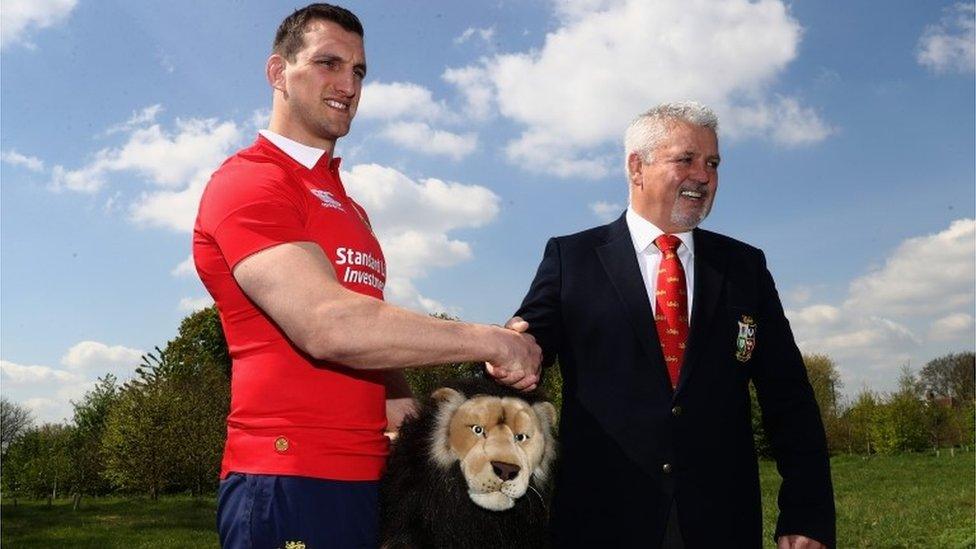
Sam Warburton will captain the Lions for a second successive tour
And he says that from a rugby follower's perspective, the Lions are also still hugely important.
"We are far and away the second most desirable proposition in rugby for fans, after attending a World Cup match," says Mr McEwen.
"We have a big fan base, who hold us dear, and that extends to people in New Zealand, Australia and South Africa. Everyone wants the Lions to stick around."
This year's Lions tour will be the last to feature 10 games, with future tours reduced to eight matches, in what is an increasingly crowded rugby union international calendar.
'Top echelon'
Meanwhile, for this year's host nation, it is hoped the visit of the star-studded Lions squad will provide such a buzz of excitement it will help New Zealand Rugby (NZR) towards balancing its books, after reporting a loss of NZ$7.5m (£4m) for 2016.
A Lions tour is a financial bonanza for the host country. NZR had matchday revenues of NZ$9.2m in 2004, and NZ$11.2m in 2006, but in the Lions tour year of 2005 revenues were NZ$33.9m.
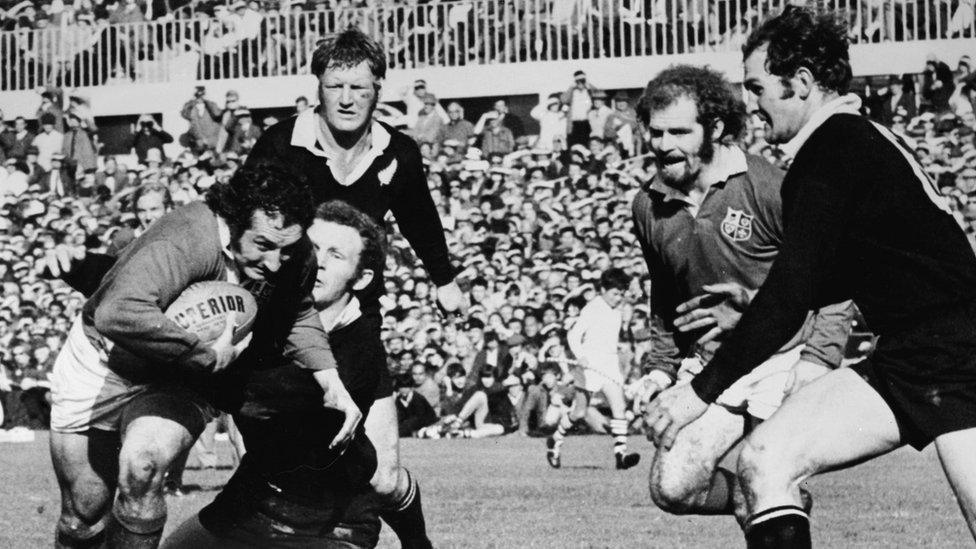
The Lions have not won a series in New Zealand since 1971
NZR has not specified how much the tour will generate, but expects demand to exceed that of the Lions' last visit in 2005, when travelling fans contributed tens of millions towards the wider New Zealand economy.
"We only tour New Zealand every 12 years, and that breeds value," says Mr McEwen.
"Lions tours are right up there as a live sporting proposition. People get excited about the rugby and football world cups, and this is also something that people want to be part of - whether in the stadium or on TV - at the top echelon of sport.
"The great thing about the Lions is the great amount of interest in them.
"The ultimate purpose for the team is winning - but our focus as a business is growing the game."